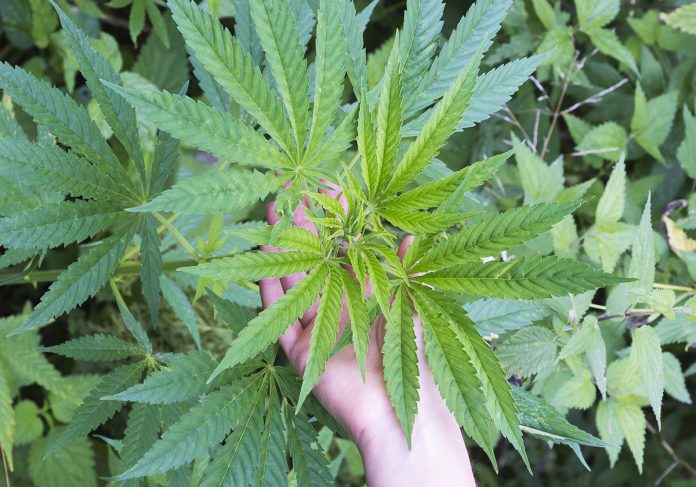Rebekah Shaman, Managing Director at British Hemp Alliance takes a close look at the future of the British hemp industry in this article
The British Hemp Alliance (BHA), formally the British Hemp Association, was formed in 2018 to lobby for change and remove the barriers to growth that are stopping a thriving UK hemp industry. It is comprised of NGO’s, farmers, businesses, environmental organisations and individuals who want to support progressive changes in hemp legislation.
The UK is lagging behind many countries who recognise hemp as an agricultural crop, which can provide thousands of sustainable products from its flowers, leaves, stalk, roots and seeds. Hemp is a competitive annual plant that grows well in most of the world’s climates, soil types, and altitudes and pre-dates most crops. It has been used and consumed by humans for more than 12,000 years.
We believe 3 things have to happen, in order for the UK hemp industry to fulfil its potential and hemp be recognised as an essential agricultural and environmentally friendly crop:
- All UK Hemp Licenses to be administered by DEFRA;
- Harvesting, extraction, processing and transportation of the whole hemp plant;
- 1% permitted levels of THC Hemp in line with Switzerland.
At present the hemp license still remains within the remit of the drugs and firearms department of the Home Office, and the process of getting the license is prohibitive. There are extensive criminal checks, strict limitations on where the plant can grow, the paperwork is complicated, a cmpliance visit costs £1371, and it is very difficult to find funding and investment to grow the industry. These restrictions are deterring traditional farmers who see hemp as an alternative oil seed crop to rape, and with many more applications.
Further crippling the industry, under the Home Office license, farmers are unable to harvest, extract, transport or process the leaf or the flower. It has to be destroyed on site. However, the flowers are the most valuable parts of the plant that contain the highest concentration of CBD (cannabidiol), a vital phytocannabinoid that supports a healthy nervous system and immune system.
It was recently discovered that humans have an ‘Endocannabinoid System’ (ECS) that is essential for physical and mental health and wellbeing. Hemp flowers contain natural levels of cannabinoids needed for this internal system to function. The hemp plant helps to regulate and maintain homeostasis in the body by nourishing the ECS. This vital food helps to prevent health issues, which occur from a deficient ECS, offering a prophylactic approach to health and wellbeing.
At present the CBD market in the UK is valued at £300 million and is expected to rise to £1 billion by 2025. A hectare of hemp flower is valued at around £33,000. To stop our farmers from gaining access to this potentially lucrative market, and allow this revenue to flow out of the UK is preposterous.
The EU law allowance of THC in a hemp plant is 0.2% THC. In North America and the rest of the world it is 0.3% THC. In Switzerland the plant can contain up to 1% THC. The hemp plant naturally produces THC – the psychotropic compound, to protect itself from UV sunlight. A healthy dose of THC means a healthier plant. 1% THC has no psychoactive effect at this dose; however, the plant is healthier and can produce better crops and flowers.
The BHA believe that these three policy changes would enable the UK to become the hemp hub of Europe. The UK is a world leader in research and design, but hemp has barely featured, which is a significant missed opportunity. Due to the removal of the processing subsidy as part of the EU CAP in 2013, and the above political barriers to growth, hemp has received little to no industrial interest or funding.
Since the passing of the U.S. Hemp Farm Bill in 2018, we are beginning to see a huge resurgence in hemp manufacturing. If we don’t act soon, we could miss this vital opportunity to be part of the worldwide hemp renaissance. British focused technological, manufacturing, and design innovations are essential to create new market opportunities for a domestic hemp industry, to boost the local, bio and circular economies.
Hemp fibre from its stalk is stronger than steel and can be processed into building materials, textiles, cars, engines, ropes, paper, and packaging. Hempseed can replace fossil fuels to make biodegradable biofuel, plastics, solvents, and paints. Its seed is also highly nutritious containing, protein, Omega 3, 6, and 9, and Gamma Linoleic Acid (GLAs), as well as essential amino acids that we need for a balanced diet.
Hemp is also an essential plant for the environment. It is a fast-growing summer crop and within four months, it can grow up to 4 metres tall, sequestering 11 tonnes of atmospheric carbon dioxide per hectare. Therefore, any product made from hemp is automatically creating a closed carbon cycle, and is biodegradable.
Hemp requires little to no pesticides or herbicides, and has a long taproot that digs half a metre into the soil, extracting contaminates, pollutants and toxins, and helping to secure and condition the topsoil. After the nuclear spill in Chernobyl hemp was used specifically to clean up the radioactivity. Also, due to its short growing season, hemp doesn’t require significant changes to current land use.
Most importantly, addressing climate change is the critical concern of our time and immediate action is required. The UK has signed up to the Paris Agreement on Climate Change, pledging to become Net-Zero by 2050, and the Sustainable Development Goals. In this context, industrial hemp is a highly versatile renewable resource that can be used in low-carbon processes to make sustainable and even carbonx-negative products.
We believe an unrestricted and thriving hemp industry delivers several key goals in the UK, relevant to both agricultural and environmental policies. It can be used for a range of environmentally friendly and carbon negative products, while actively contributing to mitigating climate change. Hemp can kickstart a new green industrial revolution, boost local economies, and help to seed a brighter future in a post-Brexit landscape.
Please note: This is a commercial profile











